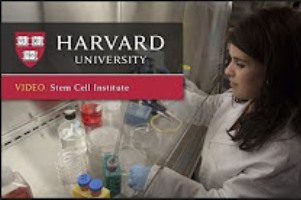
Harvard Hospitals Plan To Ban Doctor Gifts. Hospitals affiliated with Harvard University are implementing a stricter conflicts-of-interest policy for their doctors. According to a press release from Partners in Health Care, the new policy not only bans doctors from accepting gifts from drug or medical device makers, it also prevents physicians from serving as paid speakers […]

Harvard Hospitals Plan To Ban Doctor Gifts. Hospitals affiliated with Harvard University are implementing a stricter conflicts-of-interest policy for their doctors. According to a press release from Partners in Health Care, the new policy not only bans doctors from accepting gifts from drug or medical device makers, it also prevents physicians from serving as paid speakers for such companies.
Partners in Health Care is a medical system that includes Harvard-affiliated Massachusetts General and Brigham and Women’s hospitals as well as outpatient clinics. According to its press release, the new conflicts-of-interest policy is based on recommendations made by the Partners Commission on Interactions with Industry and endorsed by the Partners HealthCare Board of Directors.
In addition to banning gifts – including free meals – and paid speaking engagements, the new policy also bars drug makers from accepting fee drug samples. Instead, such samples must be provided through a hospital pharmacy or another central mechanism.
Sales reps won’t be able to visit staff unless they have “written invitations defining the purpose and terms of visits”, the press release said.
In its press release, Partners in Health Care said it has appointed a task force to ensure prompt implementation and successful rollout of the new policy.
This process will include system-wide educational initiatives, dedication of financial resources, and definition of sanctions for non-compliance.
“The Commission has crafted a thoughtful and comprehensive set of recommendations and offered a useful guide to developing important relationships with industry that are constructive and principled,” Peter Slavin, M.D., President of Massachusetts General Hospital and head of the implementation task force, said in a statement. “Our implementation effort will aim to put the policies into practice deliberately and expeditiously. We can and will do that, and when we do, I believe we will have a set of policies and processes that will serve as a model for others.”
The new Partners in Health Care policy is similar in some ways to one announced by Johns Hopkins Medical Center last week. The Johns Hopkins policy also bars doctor from accepting gifts, entertainment or food from drug and medical device companies.
It also bars drug and device sales reps from patient-care areas, and says they’re only allowed in other areas when invited by doctors or other staff. Any donations from those industries will have to be given to Johns Hopkins itself rather than individual doctors. It also includes a ban on free drug samples.
Such policies are becoming a trend. Recently, we reported that the American Psychiatric Association (APA) issued a release stating that its Board of Trustees voted to not only to phase out industry-supported symposia, but to phase out industry-supplied meals at its annual meetings, as well.
Prior to that, the state of Massachusetts adopted what are considered by many to be the most comprehensive rules governing gifts, disclosure fees, and other perks normally bestowed upon doctors by drug and medical device makers. Other states have instituted similar laws.
Several drug makers have begun or will soon begin reporting the payments they make to doctors.
The personal injury attorneys at Parker Waichman offer free, no-obligation case evaluations. For more information, fill out our online form or call 1-800-YOURLAWYER (1-800-968-7529).


